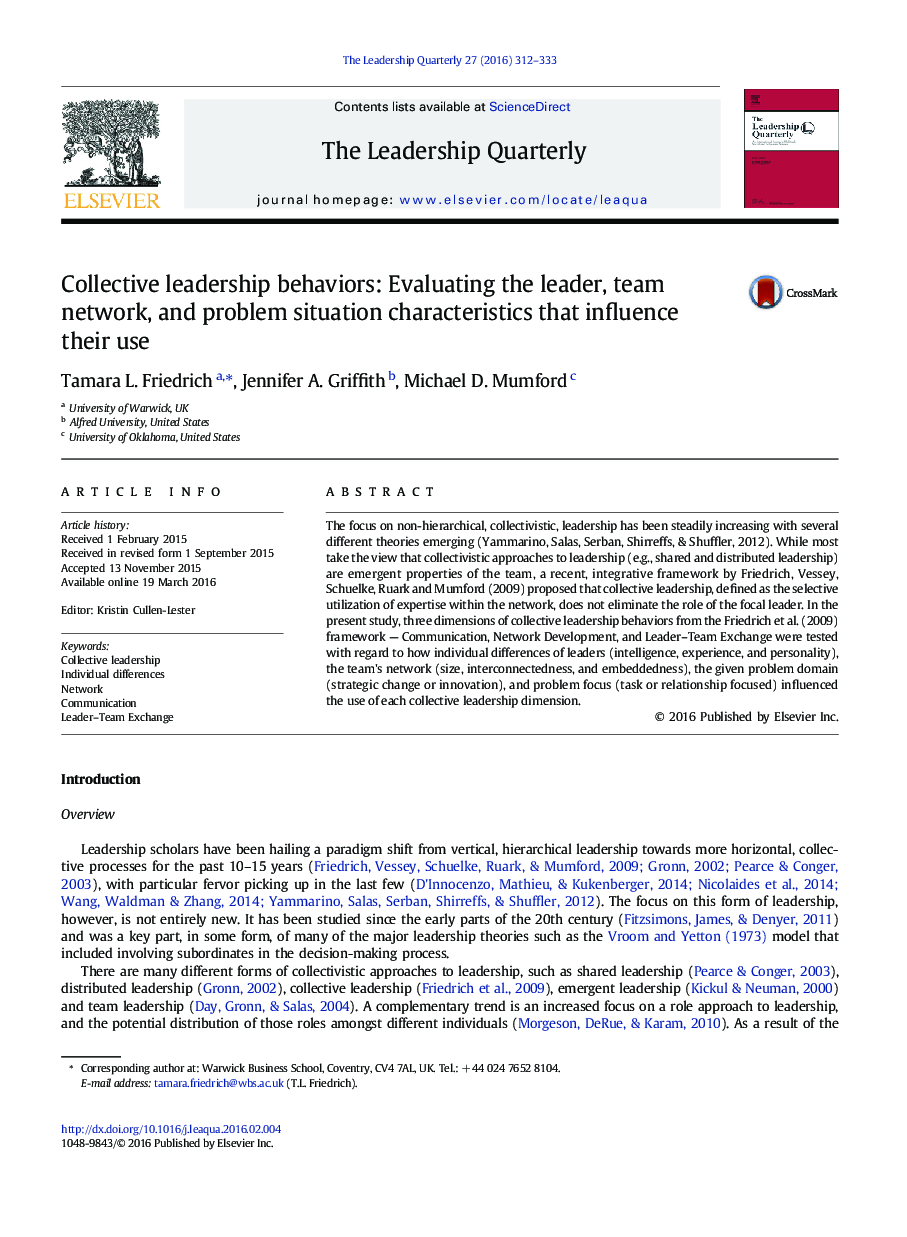| کد مقاله | کد نشریه | سال انتشار | مقاله انگلیسی | نسخه تمام متن |
|---|---|---|---|---|
| 887685 | 913404 | 2016 | 22 صفحه PDF | دانلود رایگان |
The focus on non-hierarchical, collectivistic, leadership has been steadily increasing with several different theories emerging (Yammarino, Salas, Serban, Shirreffs, & Shuffler, 2012). While most take the view that collectivistic approaches to leadership (e.g., shared and distributed leadership) are emergent properties of the team, a recent, integrative framework by Friedrich, Vessey, Schuelke, Ruark and Mumford (2009) proposed that collective leadership, defined as the selective utilization of expertise within the network, does not eliminate the role of the focal leader. In the present study, three dimensions of collective leadership behaviors from the Friedrich et al. (2009) framework — Communication, Network Development, and Leader–Team Exchange were tested with regard to how individual differences of leaders (intelligence, experience, and personality), the team's network (size, interconnectedness, and embeddedness), the given problem domain (strategic change or innovation), and problem focus (task or relationship focused) influenced the use of each collective leadership dimension.
Journal: The Leadership Quarterly - Volume 27, Issue 2, April 2016, Pages 312–333
